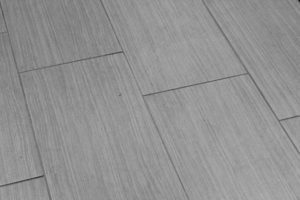Porcelain Tile Floor Cleaning Services Porcelain Tile Cleaning, Maintenance, Protection and Sealing
-
Porcelain Tile Floor Cleaning & Most types of tiles that are made from clay or a mixture of
 clay and other materials and then kiln-fired, are considered to be a part of the larger classification called“Ceramic Tiles”. These tiles can be split into two groups, porcelain tiles and non-porcelain tiles. These non-porcelain tiles are frequently referred to as ceramic tiles by themselves, separate from porcelain tiles – confusing!
clay and other materials and then kiln-fired, are considered to be a part of the larger classification called“Ceramic Tiles”. These tiles can be split into two groups, porcelain tiles and non-porcelain tiles. These non-porcelain tiles are frequently referred to as ceramic tiles by themselves, separate from porcelain tiles – confusing!Non-porcelain ceramic tiles are generally made from red or white clay fired in a kiln. They are almost always finished with a durable glaze, which carries the color and pattern. These tiles are used in both wall and floor applications. Non-porcelain ceramic tiles are usually suitable for very light to moderate traffic and generally have a relatively high water absorption rating making them less frost resistant and they are more prone to wear and chipping than porcelain tiles. Porcelain tile is more scratch resistant than ceramic tile. Also, porcelain tile is fired at higher temperatures than ceramic, resulting in superior durability and stain resistance.
Porcelain unglazed tile is generally made by the dust pressed method from porcelain clays which result in a tile that is dense, impervious, fine grained and smooth, with a sharply formed face. Porcelain tiles usually have a much lower water absorption rate (less than 0.5%) than non-porcelain ceramic tiles making them frost resistant. Full body Porcelain Tile Floor Cleaning requires that it carry the color and pattern through the entire thickness of the tile making them virtually impervious to wear and are suitable for any application from residential to the highest traffic commercial or industrial applications. Because porcelain tile is fire-hardened and quite hard, it can be cleaned at pressures up to 1,450 PSI if the grout is in good condition.
Porcelain unglazed tiles are similar to glazed tile, except that their surface is not coated. Full-body porcelain unglazed tiles do not show wear because their color extends throughout the tile, making them ideal for commercial applications.
-
Sealing Ceramic and Porcelain Tile & Grout
Glazed tiles are coated with a liquid glass, which is then baked into the surface of the clay. The glaze provides an unlimited array of colors and designs as well as protects the tile from staining. A glazed tile is already stain proof, so there is no purpose to putting on a sealer. However, the grout joint between the tiles is usually very porous and generally made of a cement-based material. Therefore, grout joints typically will need to be sealed and maintained properly to prevent stains and discoloration. Impregnating sealers such as All-Purpose Grout Sealer go into the grout joint and protect against water and oil-based stains. Most industry professionals recognize that grout is best protected with a fluorochemical-based sealer, such as Impregnator Pro or All-Purpose Grout Sealer. If the grout joint is epoxy, a sealer is not necessary.
